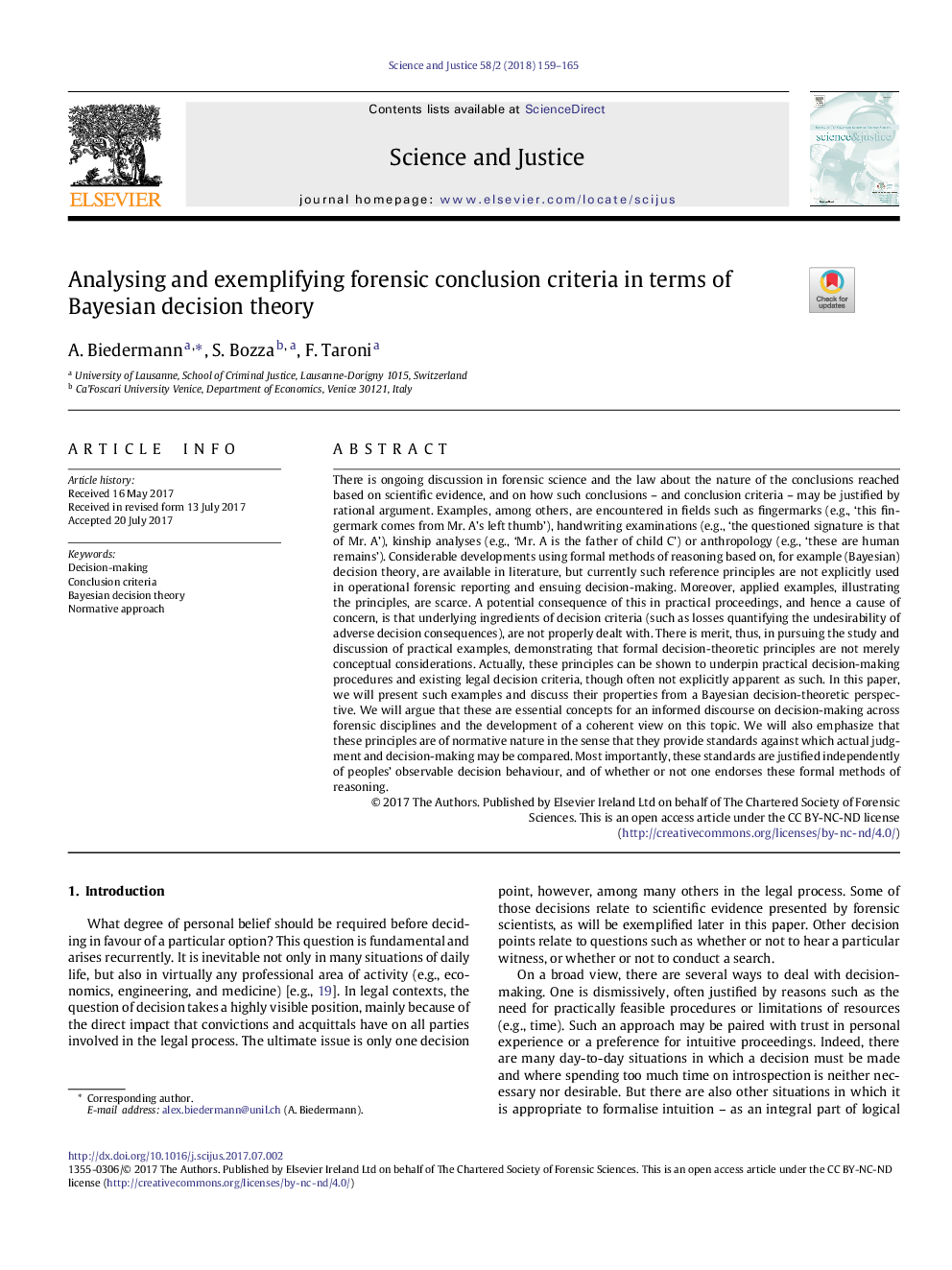| کد مقاله | کد نشریه | سال انتشار | مقاله انگلیسی | نسخه تمام متن |
|---|---|---|---|---|
| 6555924 | 1422499 | 2018 | 7 صفحه PDF | دانلود رایگان |
عنوان انگلیسی مقاله ISI
Analysing and exemplifying forensic conclusion criteria in terms of Bayesian decision theory
ترجمه فارسی عنوان
تجزیه و تحلیل و معیار معیارهای نتیجه گیری قانونی در نظر سنجی تصمیم گیری بیزی
دانلود مقاله + سفارش ترجمه
دانلود مقاله ISI انگلیسی
رایگان برای ایرانیان
کلمات کلیدی
تصمیم سازی، معیارهای نتیجه گیری، نظریه تصمیم گیری بیزی، رویکرد نورمتیک،
موضوعات مرتبط
مهندسی و علوم پایه
شیمی
شیمی آنالیزی یا شیمی تجزیه
چکیده انگلیسی
There is ongoing discussion in forensic science and the law about the nature of the conclusions reached based on scientific evidence, and on how such conclusions - and conclusion criteria - may be justified by rational argument. Examples, among others, are encountered in fields such as fingermarks (e.g., 'this fingermark comes from Mr. A's left thumb'), handwriting examinations (e.g., 'the questioned signature is that of Mr. A'), kinship analyses (e.g., 'Mr. A is the father of child C') or anthropology (e.g., 'these are human remains'). Considerable developments using formal methods of reasoning based on, for example (Bayesian) decision theory, are available in literature, but currently such reference principles are not explicitly used in operational forensic reporting and ensuing decision-making. Moreover, applied examples, illustrating the principles, are scarce. A potential consequence of this in practical proceedings, and hence a cause of concern, is that underlying ingredients of decision criteria (such as losses quantifying the undesirability of adverse decision consequences), are not properly dealt with. There is merit, thus, in pursuing the study and discussion of practical examples, demonstrating that formal decision-theoretic principles are not merely conceptual considerations. Actually, these principles can be shown to underpin practical decision-making procedures and existing legal decision criteria, though often not explicitly apparent as such. In this paper, we will present such examples and discuss their properties from a Bayesian decision-theoretic perspective. We will argue that these are essential concepts for an informed discourse on decision-making across forensic disciplines and the development of a coherent view on this topic. We will also emphasize that these principles are of normative nature in the sense that they provide standards against which actual judgment and decision-making may be compared. Most importantly, these standards are justified independently of peoples' observable decision behaviour, and of whether or not one endorses these formal methods of reasoning.
ناشر
Database: Elsevier - ScienceDirect (ساینس دایرکت)
Journal: Science & Justice - Volume 58, Issue 2, March 2018, Pages 159-165
Journal: Science & Justice - Volume 58, Issue 2, March 2018, Pages 159-165
نویسندگان
A. Biedermann, S. Bozza, F. Taroni,
